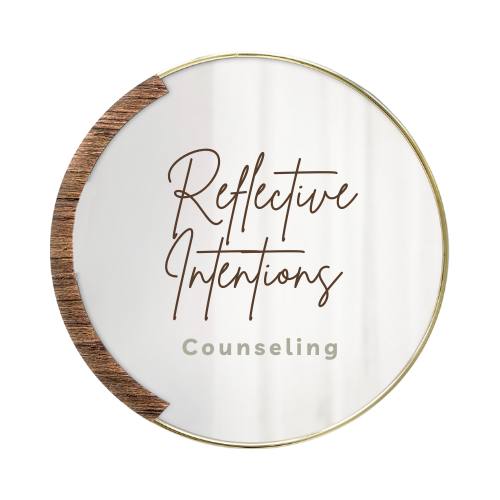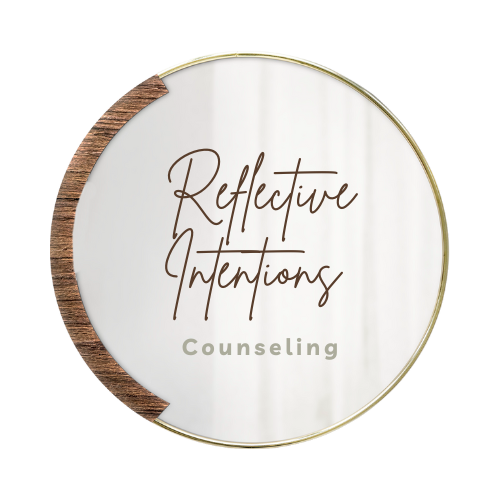Are they a narcissist or just toxic?
Are they a narcissist or just toxic?
Jeez, what a debate. TikTok will have you believe that everyone is a narcissist, just like anyone who disagrees with you is gaslighting you. That is not the case. So allow me to break it down the best I can based on what I have seen.
Are there narcissists out there? ABSOLUTELY and probably more than we thought because survivors are becoming more brave in sharing their stories. Thank you to those who are actively recovering from such a sinister form of abuse and using their knowledge to save others. We see you and we thank you. AND there are also just toxic people who have very little knowledge of how to handle their emotions and they get a bad rep because they don’t understand the difference between intent and effect.
Throughout this blog post, we’ll discuss the following:
What is a narcissist
What is empathy vs. feigned empathy
A demonstration of the narcissistic cycle of abuse
The concept of guilt vs. remorse
The difference between a narcissist and a toxic person (yes, there’s a difference)
What is a narcissist:
A narcissist, in short, is an individual with a personality disorder. Very rarely, if ever, does a narcissist “get better.” The reason for this is that narcissists do not have either the self-reflection or motivation to believe they are ever the problem. So if you’ve ever questioned if you’re a narcissist, there is a 99% chance you’re not. A narcissist wouldn’t walk away from a situation wondering if they were being “too much” or toxic. They enter the interaction and make sure they walk away feeling elated after sucking the good vibes out of you.
According to the DSM V-TR, a therapist's bible, narcissists have a great idea of self-importance; they firmly and genuinely believe that their treatment should be unique and that they are deserving of special treatment even in the most mundane of circumstances.
“Give me a second and I’ll call you back.” HOW DARE YOU.
They are unable to tolerate a lack of admiration and attention. They will often rage at or sabotage the person they choose to victimize. They withhold praise from others because they actually believe their praise will “make or break” a person. They often live in a world of self-important delusion to hide the fact that they are actually EXTREMELY insecure about themselves. Narcissism is a result of childhood/early attachment trauma.
Before you continue to read on, acknowledge that the feeling you experienced while reading the end of the previous paragraph is called empathy. Some people say that narcissists have empathy, and that’s how they charm others and keep people in the cycle. I personally beg to differ. I do not believe narcissists have the ability to have actual empathy, and I do firmly believe, based on working with them and survivors in recovery over the years, that narcissists are really good at feigning empathy.
Let’s break it down.
What is empathy:
Empathy is a person’s ability to resonate with someone’s experience. A person with empathy can understand, not necessarily agree, but understand a person’s experience and reasons for doing things. When realizing that narcissism is a product of very hurtful early childhood trauma, you may have thought, “Oh, that’s pretty sad,” and stopped to reflect a little bit on the person you were thinking of when you googled narcissist and clicked on this post.
Or, if you’re ahead of the game, you are already winded and tired of a narcissist's superficial and very dramatized reactions and are choosing not to care and engage in self-protection.
Feigned Empathy
A narcissist makes an art form of feigned empathy. Remember, a narcissist is so removed from wanting to make an authentic connection out of fear of intimacy and vulnerability that they don’t want or have the skill of empathy. They are stuck in the “preoperational” stage according to Jean Piaget’s stages of cognitive development. Piaget theorizes that from ages 2-6, a child’s thinking is often egocentric and self-centered. Early childhood trauma and emotional alienation from parents can lead to an inability to develop the skill of empathy because empathy is a skill cultivated by emotional intelligence, which narcissists and emotionally immature people do not have.
Their emotional growth is therefore stunted by their upbringing, which makes it damn near impossible for them to care about anyone else but themselves. It is also a defense mechanism.
So they intellectualize empathy. They can define it and even utilize examples, adapting it as a role to play in whichever mask they want to use that day. The bottom line, their emotional attachment to “empathy” isn’t actually there. Consider the moments when you explain how you’re hurt to the narcissist in your life and observe their indifference or almost robot-like responses.
Being self-referential and self-involved
All narcissists are emotionally immature, BUT not every emotionally immature person is a narcissist. Emotionally immature persons are often self-referential, self-involved, and rejecting of others. Ever had a conversation about a particular topic or even shared a profoundly moving story about yourself and had someone immediately make it about themselves or change the subject altogether? Yup, they need the focus on them; that’s why they do it. Some people share stories in attempts to make connections with others, but those people never fail to validate first and reflect. A narcissist will tell you that your problem is affecting them.
Example: You tell the narcissist about a situation you are going through, and the narcissist responds with: “Well, how do you think makes me feel? You know I love you so much, and watching you be in pain is just heart-wrenching (aww) and the worst thing that can happen with my birthday being around the corner. Why couldn’t you bring this up after? Now my birthday is ruined. You make everything about you.”
Sound like someone you know? The self-involvement is real.
Below is the cycle of abuse as I explain it to my clients when I suspect they are recovering from narcissistic abuse, which you can read in my other blog post: What is Narcissistic Cycle?
So how do you know the difference between a toxic person and a narcissist?
This is arguably one of the hardest things to suss out because toxic is toxic. There is no “less toxic,” and viewing it that way can be incredibly invalidating for survivors of relationships riddled with toxic dynamics. For a complete breakdown, listen to my podcast: Sincerely, 2 imperfect therapists: Episode 28.
What is a toxic person?
I conceptualize a toxic person as one who struggles with emotional regulation and therefore tends to relate to others based on their emotions rather than a strategic and calculated effort to establish power- like the narcissist.
A toxic person may also be self-referential and sometimes self-involved but with a capacity to self-reflect. I notice that individuals who demonstrate toxic tendencies often wish they could relate to others differently, not always, but often. A toxic person needs some skill-building.
They may be able to apologize and show remorse for their action genuinely. Not guilt, but remorse. And lastly, a toxic person behaves in a toxic manner when they are being flooded with emotion. So they will lash out, be possessive or insult you when they are triggered. Usually, this will happen solely during an argument; it’s not usually a planned or calculated move.
Guilt vs. remorse:
Guilt is “stop making me feel bad for hurting you.” Remorse is “I am sorry that I hurt you.” The latter is a person who is capable of making transformative change. Transformative change is how some couples can overcome complex issues like infidelity, financial betrayal, substance dependency, etc. More often than not, it is because the person who hurt you reflected, was remorseful, and was willing to grow to make room for what the relationship needs.
Toxic people vs. Narcissist
Toxic people will utilize methods of gaslighting and manipulation to meet their needs. Whereas I often see a narcissist both manipulating for their personal gain and to feel a “high” off of devaluing you. For a narcissist, power is everything, and for them, everyone is playing chess. They have to make sure they checkmate you. Again, we see the delusion of grandiosity, that everyone is going out of their way to do precisely what they are doing to everyone else. Hello, projection, or better yet: Pot, meet kettle.
Individuals with no self-reflection or ability to be accountable for their actions will be LOUD in their judgment when they happen to be doing the exact same thing.
Narcissists will rage when their discrepancies, manipulation, and gaslighting are called out. Of course, to the trained eye, that rage comes from many vulnerable emotions such as shame, guilt, embarrassment, and deep insecurity. Narcissists will completely discard you when you are not treating them the way they “deserve” to be treated. However, they can’t fully let you go because they can’t risk losing you while they search for a new “supply.”
Again, access my previous blog post: What is the narcissistic cycle, to understand the hoovering stage.
A toxic person will be in a relationship when you break up, post their new love and make subs at you on Twitter (X). Their reason? Not so much to ruin you, although it may feel like that, mainly to make themselves feel better. A toxic person constantly seeks emotional validation from someone because they don’t know how to handle their emotions independently. On the contrary, a narcissist is fulfilling their need for admiration and attention, so they will look for supply after they’ve depleted you.
If it feels like being in a relationship with a toxic person is equivalent to being on a rollercoaster without a seatbelt, it’s because it is. Here’s your bucket. Like a lousy corn dog, that self-sacrifice expectation others have of you doesn’t belong in your body- throw that shit up.
We can understand where someone’s pain is coming from but not at the risk of our mental health and well being.
Listening to your gut is a great way to determine if/when a relationship is not suitable for you.
Narcissist or not, your gut is usually right. Society has told us that our gut makes us impulsive, but being impulsive and not putting up with bullshit are two entirely different things.





